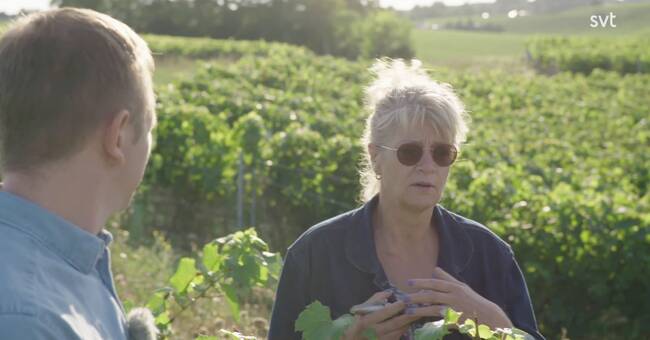The Chablis wine district in northern Burgundy.
World famous for its white wines.
Here we meet Cyril Gautheron and his team - they have just started the harvest.
- It is very weak this year.
This morning we have picked about 60-70 percent less grapes than usual, he says.
Some distance away, the Davennes have their vineyards.
They have chosen to wait a week or so to harvest.
It is important to find the right opportunity.
In addition to being few this year, the grapes are differently ripe.
Those who survived the frost are ready to be picked, but most froze and are several weeks behind.
"An agricultural disaster"
The French agriculture minister has called the frostbite "probably the biggest agricultural disaster of the beginning of the decade".
Most wine regions in France have been affected.
Among other things, the classic areas of Bordeaux, Champagne and Burgundy.
Production is estimated to be up to 30 percent less this year.
That would mean a loss of around SEK 20 billion.
Similar but minor problems have affected other wine countries such as Germany, Spain and Italy.
They have to find other ways to make a living
So far, the shortage is not noticeable.
Right now, previous vintages are being shipped out into the world.
It is only next year that it will be noticed that the 2021 vintage of many French wines is lean.
Clotilde Davenne is considering alternative sources of income next year.
- You must always be positive.
We can invest in developing wine tourism, bringing more people to the farm.
"There are no normal years anymore"
Most wine growers can handle a bad year - they have to pay a little better for the 2021 wine and develop other parts of the business.
The problem is that the extreme years are coming more and more often.
Climate change has changed the conditions and perhaps this year's poor harvest is only a foretaste of future challenges.
- There are no "normal years" anymore.
We have big problems ahead of us.
The soil here is rich in lime and does not retain the water so well.
Our wine does not tolerate hot dry summers.
We are trying to adapt, but if the warming continues, we may not have any Chablis wine in 2050, says Clotilde Davenne.
Hear the winemakers in Chablis tell more about the situation and thoughts for the future in the clip above.

